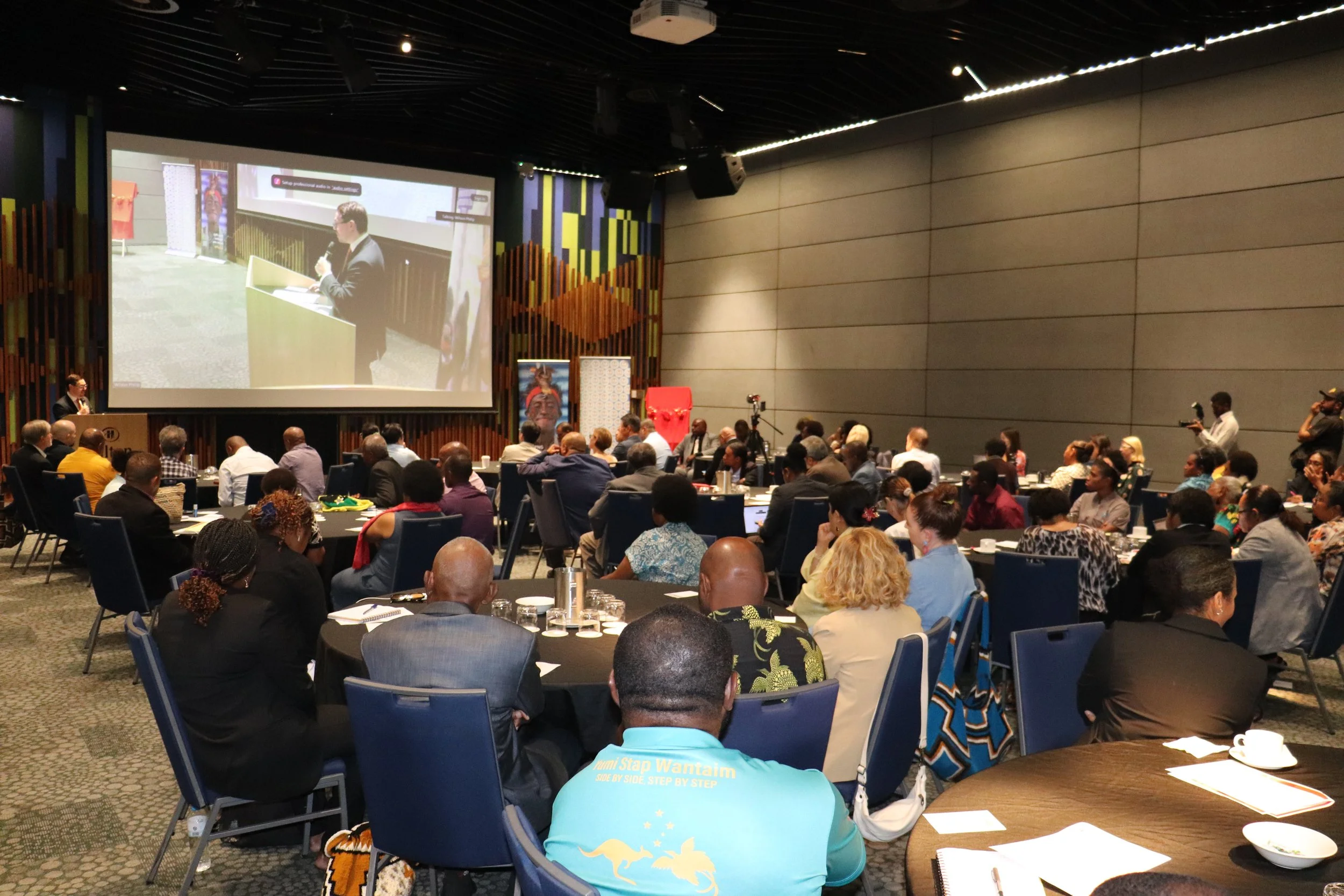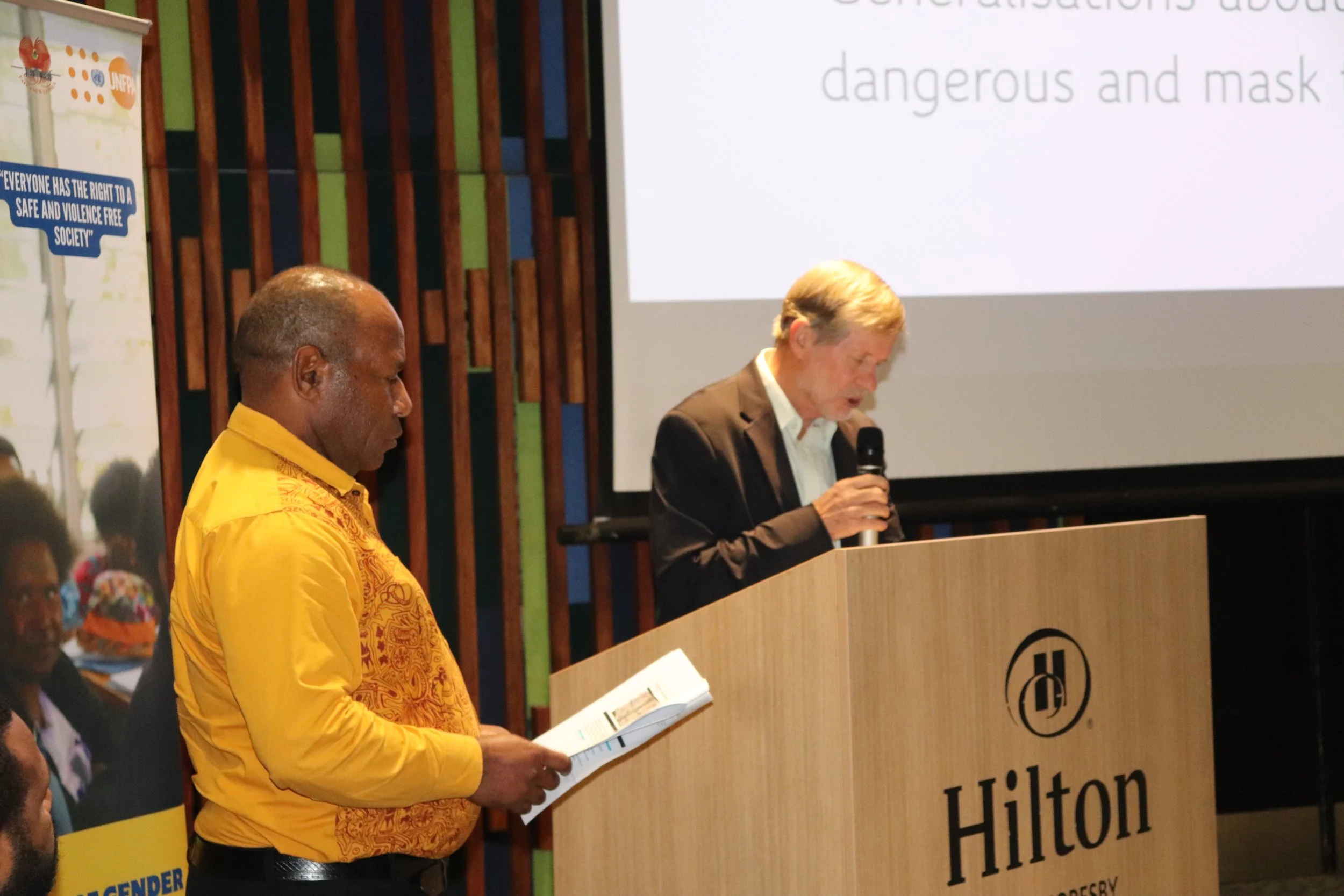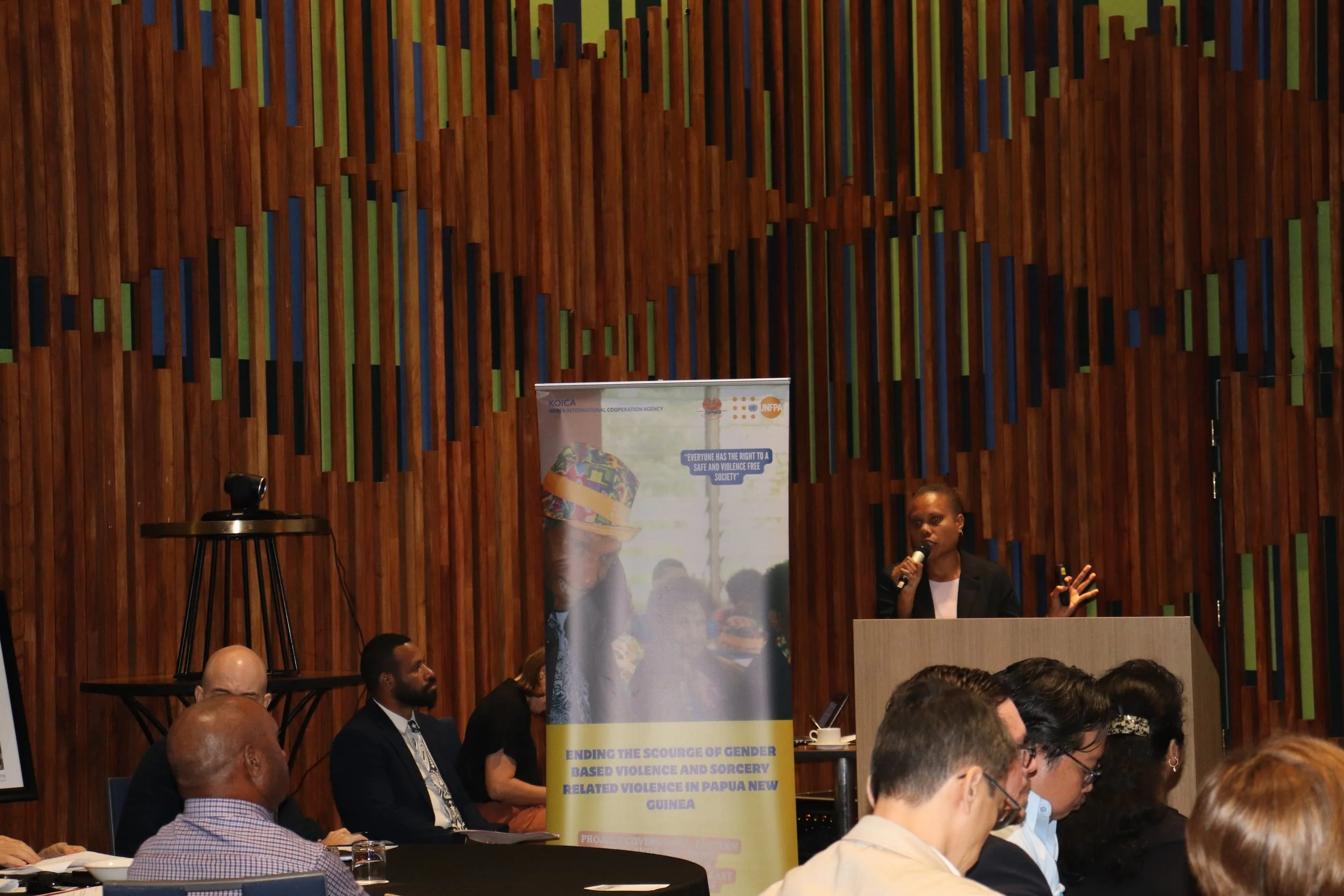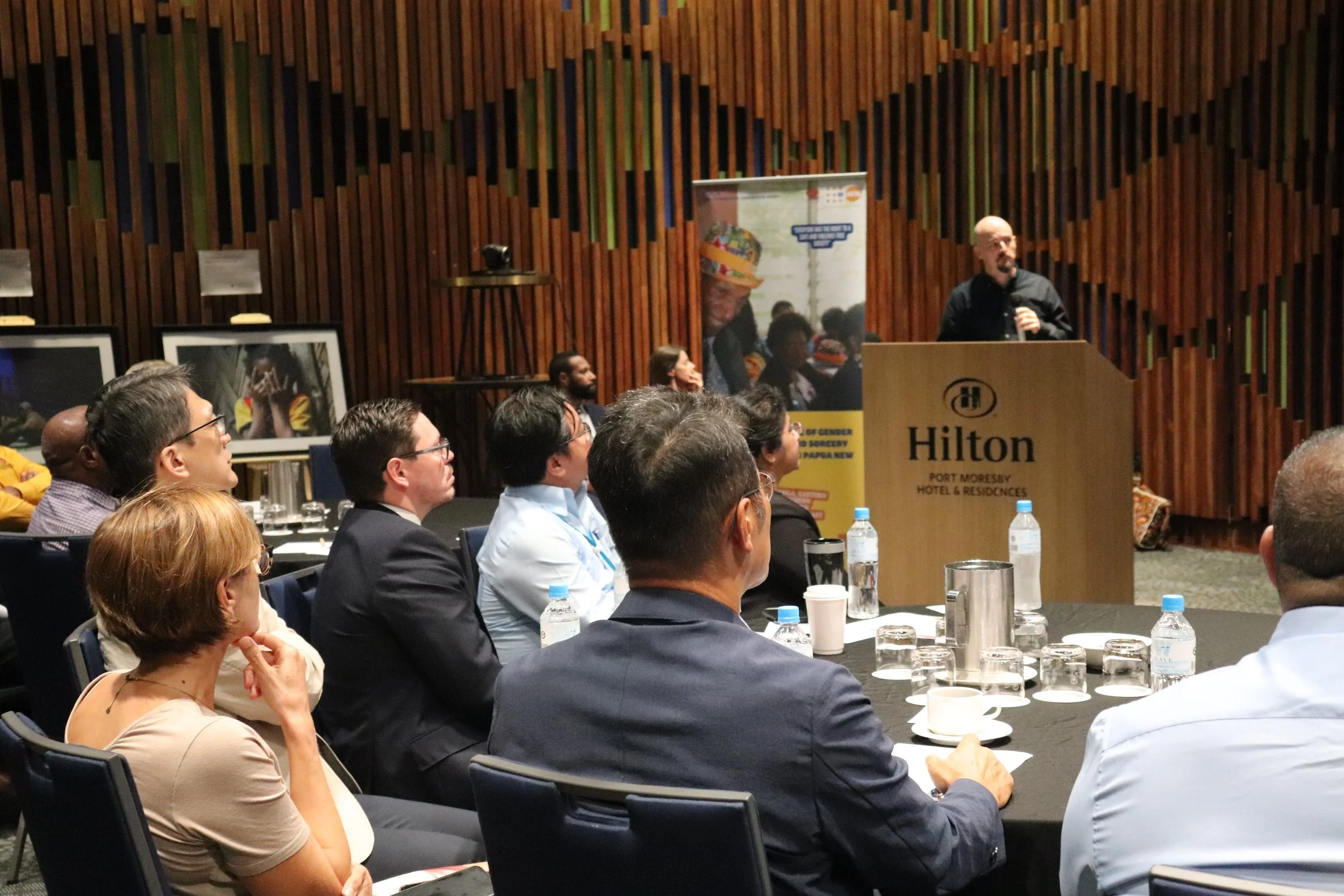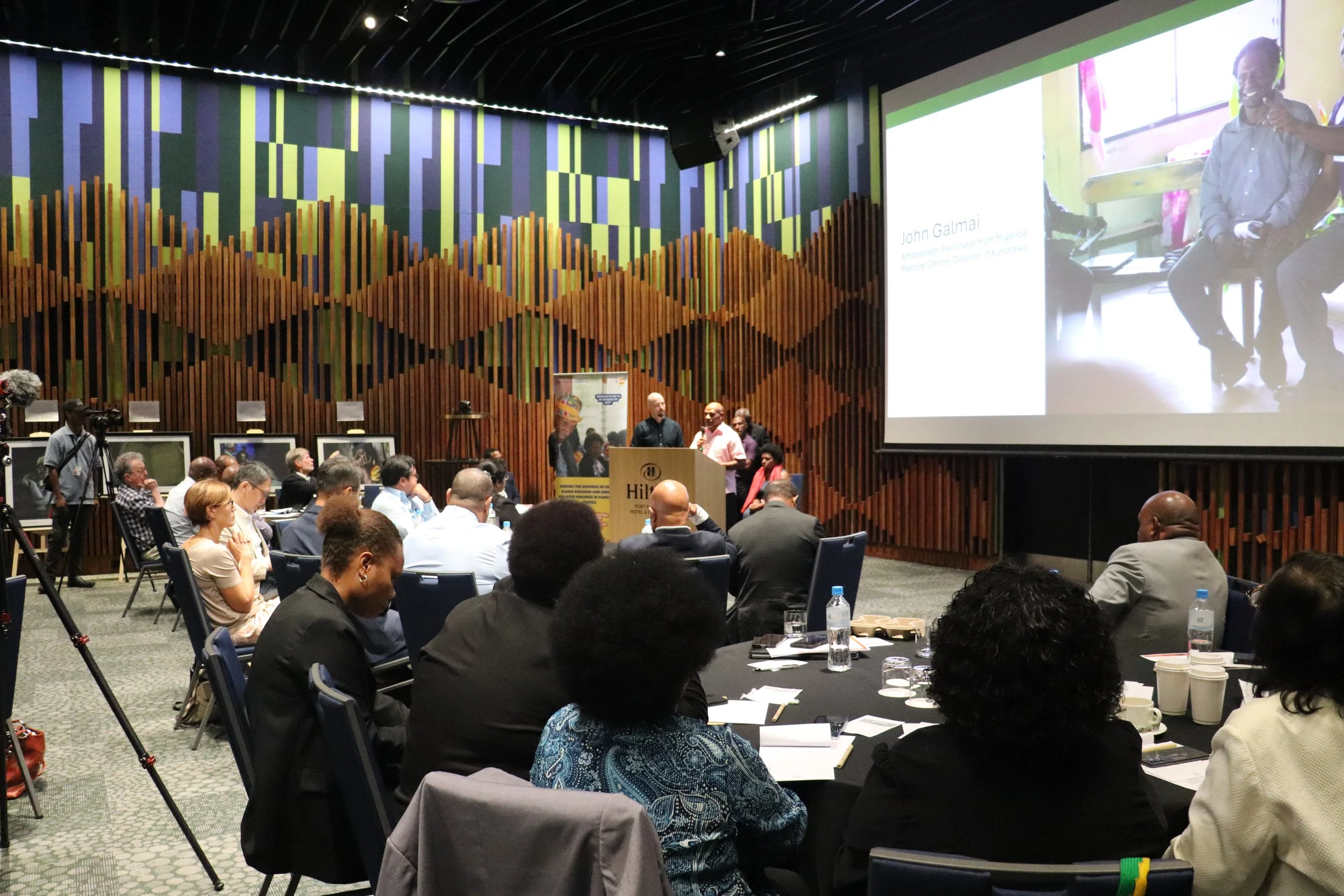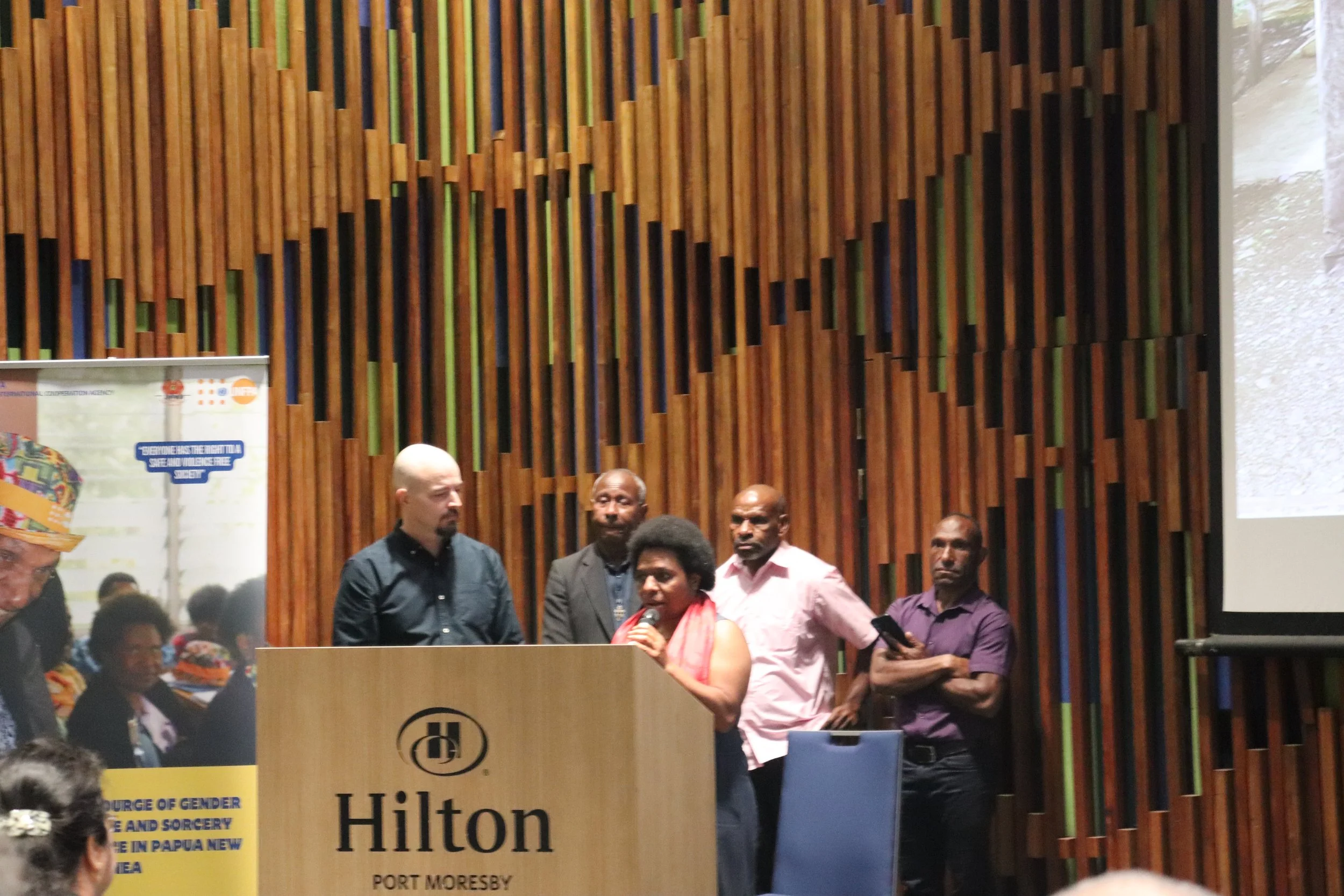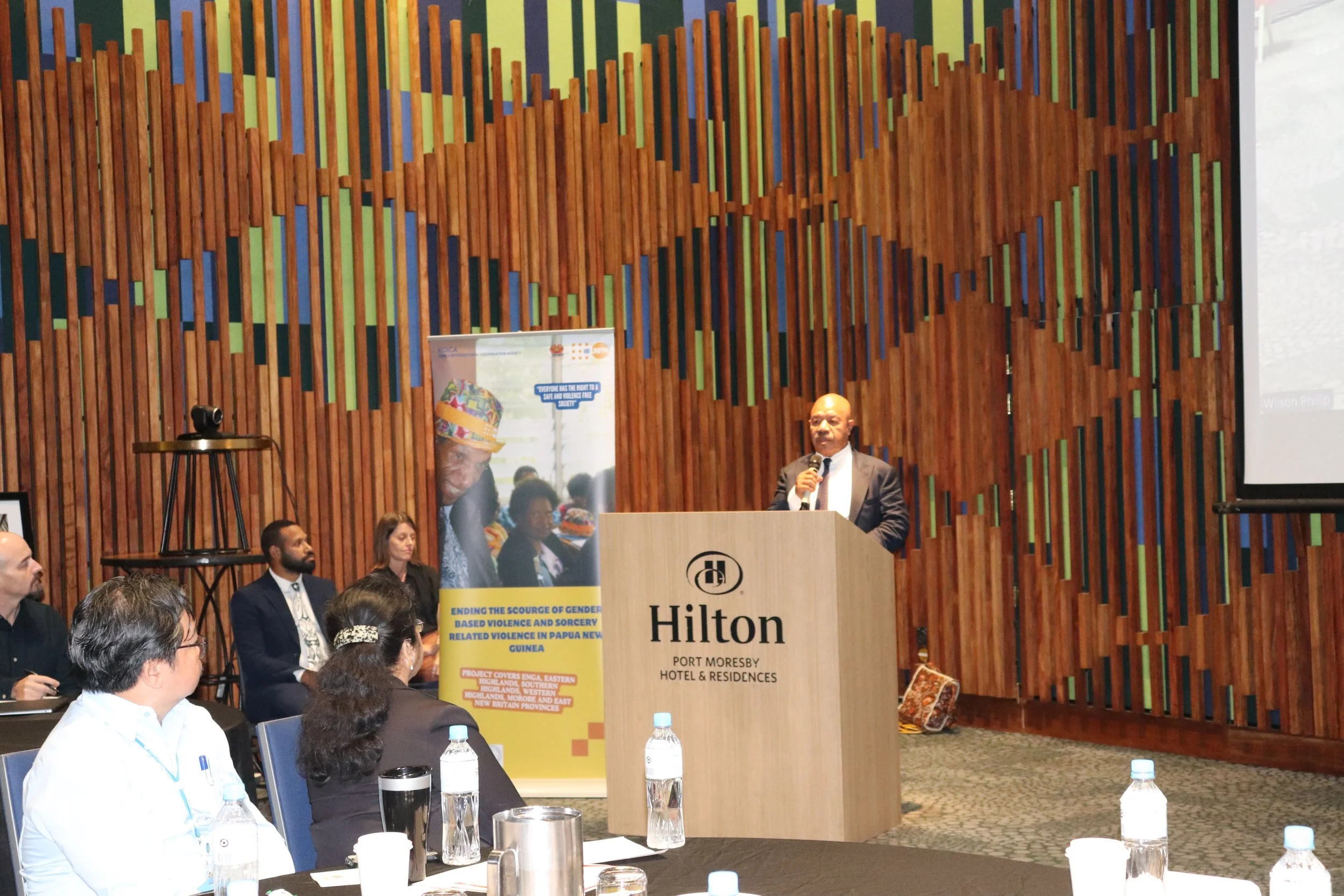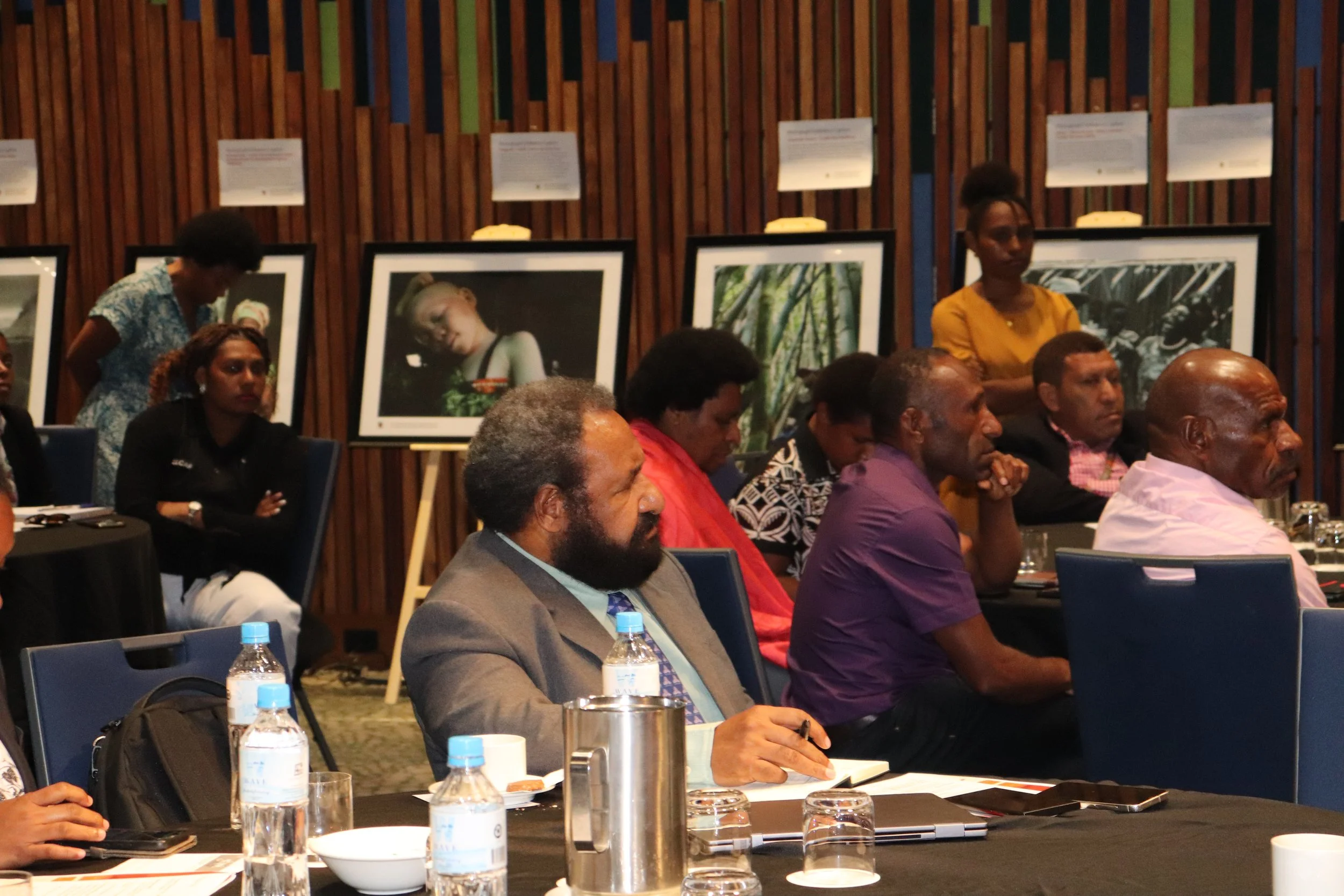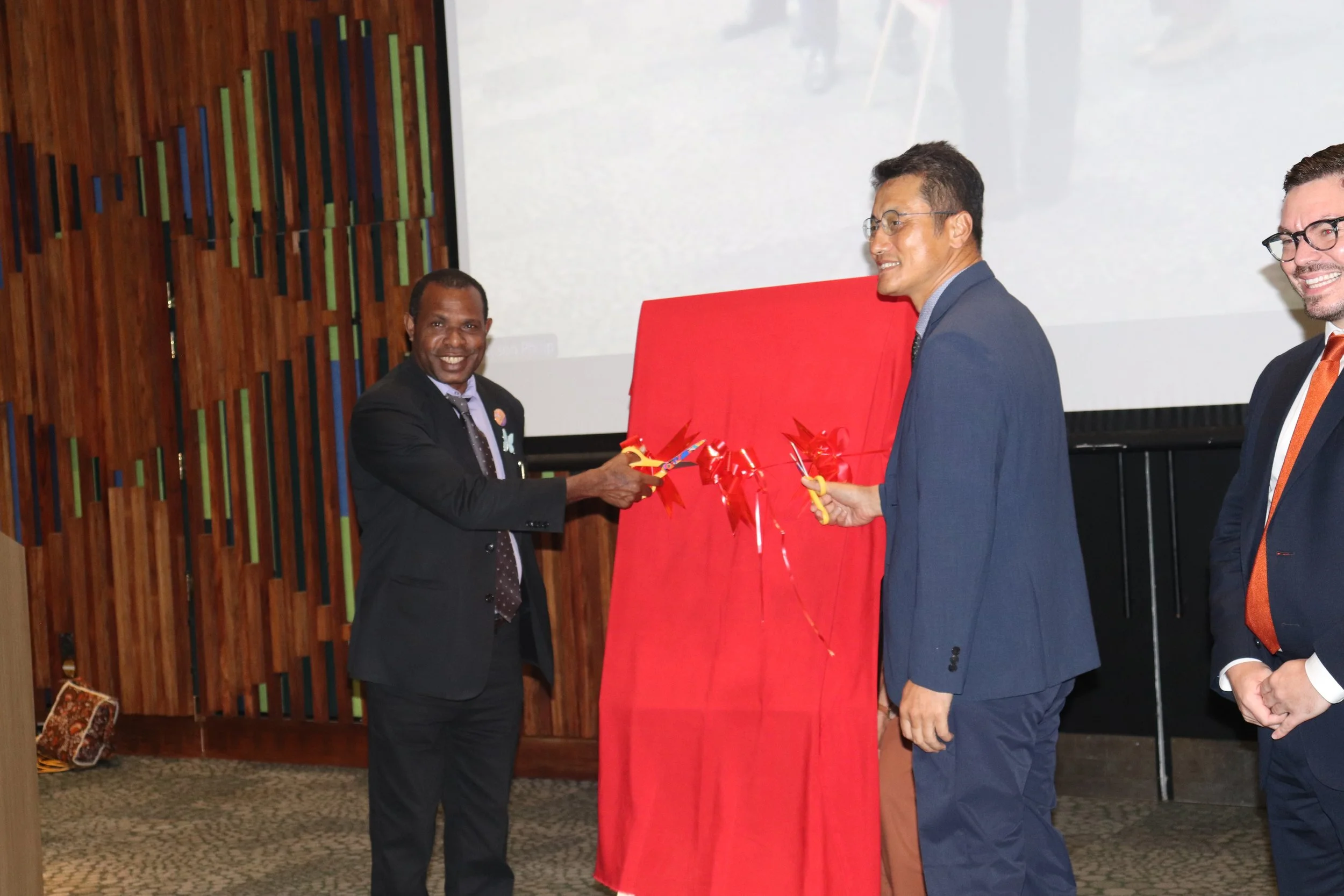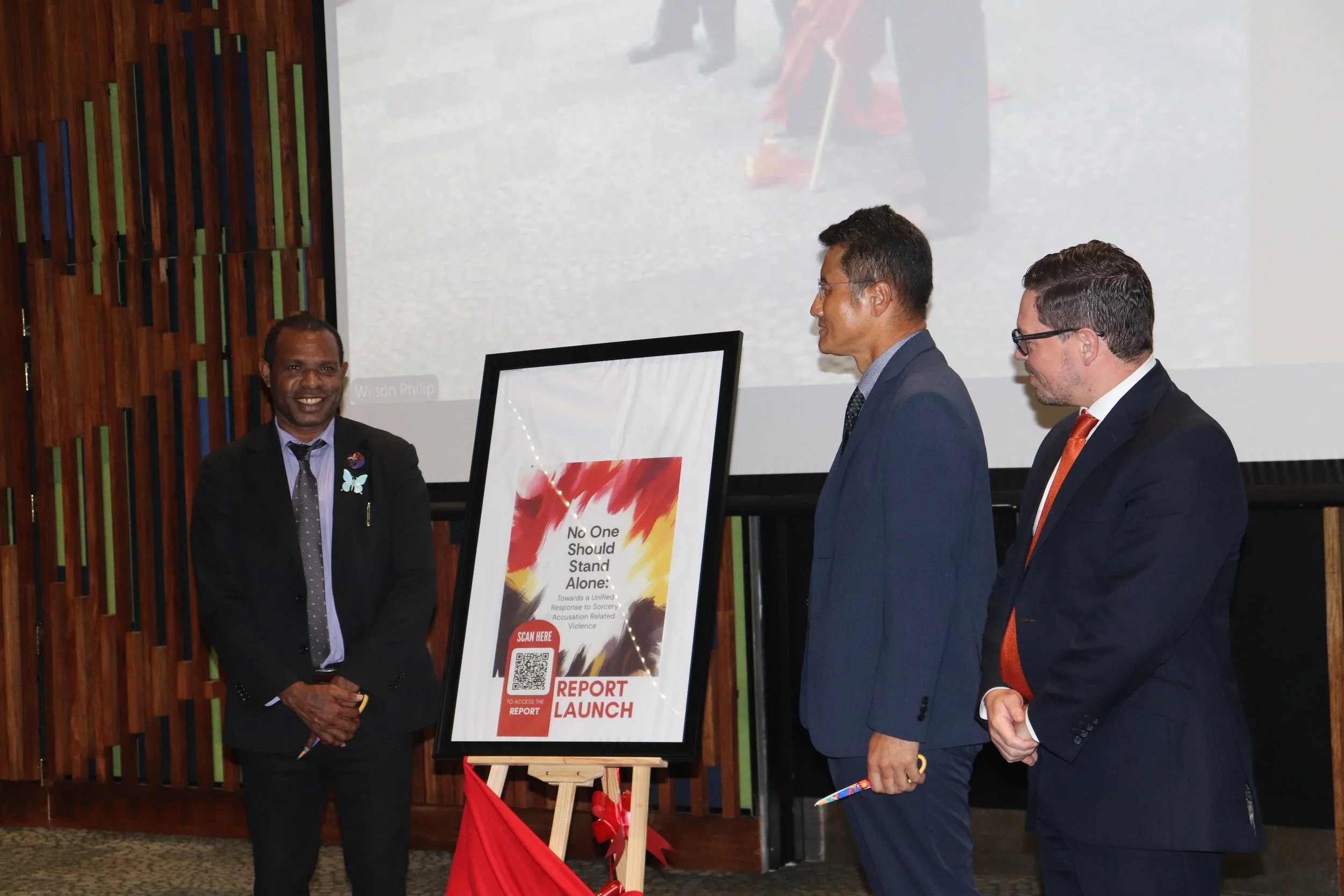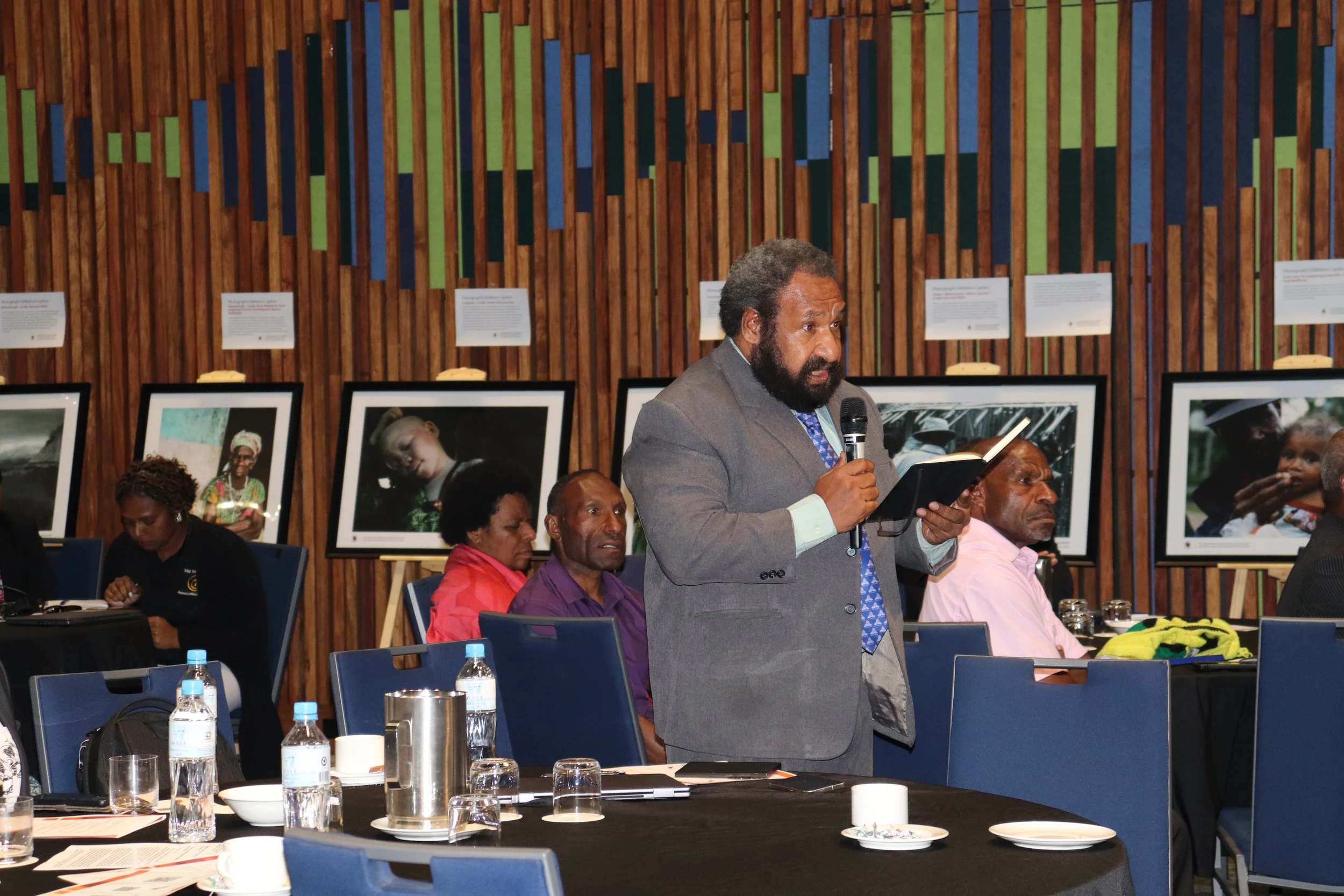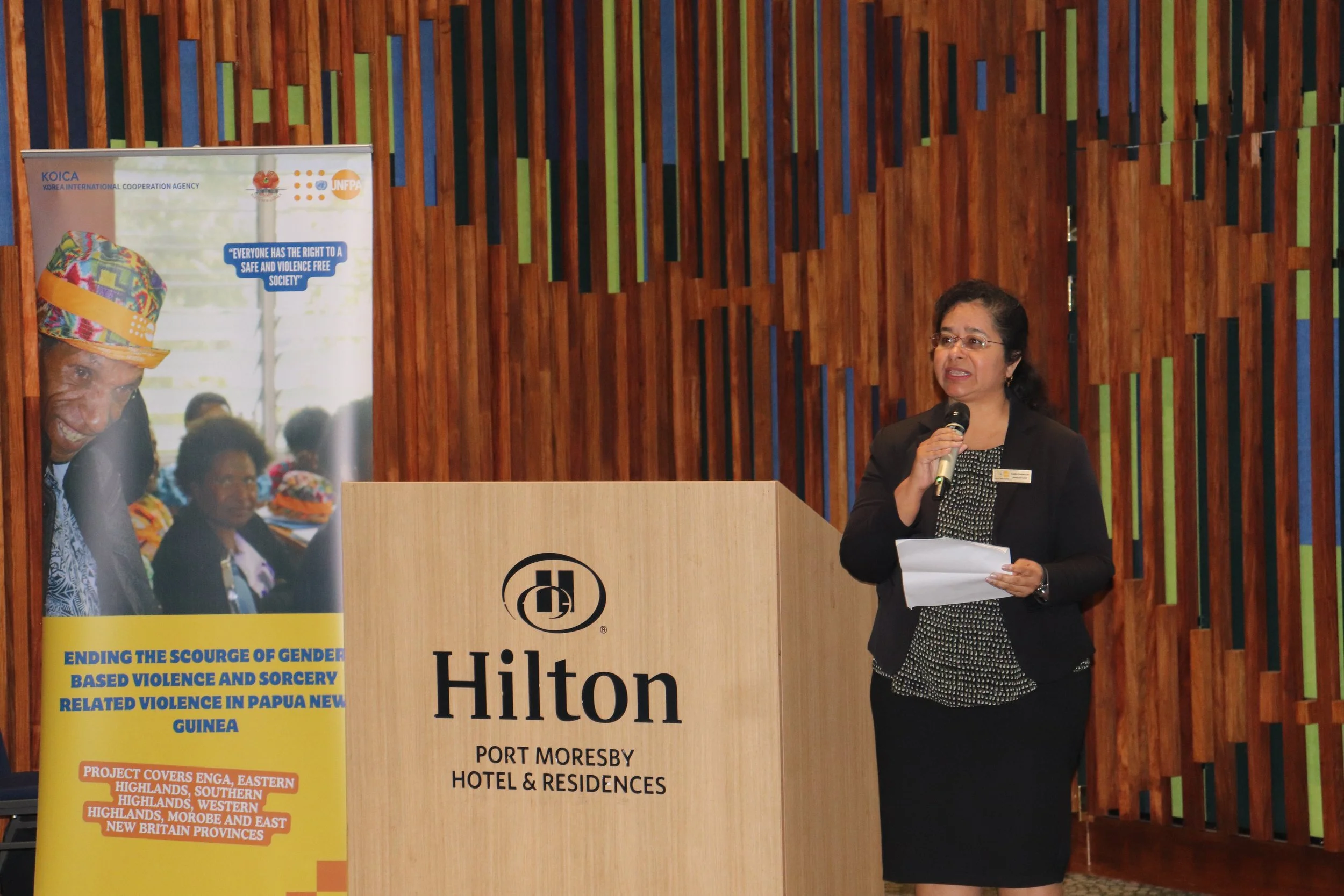Launching PNG’s National Action Plan and key resources to end sorcery accusation-related violence
At this important event, three key resources to fight sorcery accusation-related violence were launched, offering advocates on the ground strong support in their efforts to end human rights abuses. Learn more about each resource and access clickable links to the materials. Keep scrolling to see a photo montage of the event, followed by stories about the event from other sources.
by INAWARA
2 September 2025
Event location: Port Moresby, PNG
On 19 August 2025, a landmark event took place in Papua New Guinea. The United Nations Sexual and Reproductive Health Agency (UNFPA), together with Divine Word University, the Australian National University and INAWARA, launched three key documents aimed at ending sorcery accusation-related violence (SARV).
The launch wasn’t just another conference - it was PNG’s National Dialogue on SARV, bringing together people from across government, academia and the international community. In attendance were Hon. Governor Powes Parkop, Minister Jason Peter, Dr. Eric Kwa, Dr. Ken Wai, and the Korean Ambassador to PNG, H.E. Choi Jong Ho, alongside many others committed to finding solutions to ending SARV.
To begin with, DJAG presented the National Action Plan to Combat Sorcery Accusation-Related Violence in Papua New Guinea (2024–2030), a new framework to guide all partners working to end SARV in the country. By situating the report and curriculum (each discussed next) with the National Action Plan, the event helped ensure that everyone was working from the same page and could see how research, policy and community action fit together.
The next document unveiled was the report No One Should Stand Alone: Towards a Unified Response to Sorcery Accusation Related Violence. provides a grounded, comparative look at how SARV is currently playing out across seven provinces in the Papua New Guinea Highlands. The report also documents how the state, communities, organisations (including NGOs and churches) and individuals are responding. In many ways, it’s a stocktake that captures the challenges communities face, the efforts already underway and the urgent action gaps that still need attention.
The two key messages from the Report that were emphasised at the launch were the need to flip the current focus on reaction to prevention, and the need to move from awareness of the issue to transformation. Transformation requires a joined-up strategy with all the actors in the space working together.
The report itself was commissioned by the Department of Justice and Attorney General (DJAG) and financially supported by the Korean International Cooperation Agency (KOICA). It represents the combined efforts of Divine Word University, the National Research Institute of Papua New Guinea, and the Australian National University. UNFPA paid tribute to the research team for their careful work in bringing it all together.
The third resource to be launched was one that takes the fight against SARV right into communities themselves. The Community Curriculum Addressing Sorcery Accusation-Related Violence, is another big step forward in the fight to end this devastating issue in Papua New Guinea. Developed and funded by the same partners behind the No One Should Stand Alone report, the curriculum’s creation was led by long-time SARV advocate, Anton Lutz.
The community curriculum is a grassroots guidebook for change. It pulls together clear ideas, practical approaches and directions communities can put into use themselves. The message is simple but powerful: change begins locally. It grows when people share understanding, and it spreads when local leaders carry it forward.
The curriculum isn’t just a static manual sitting on a shelf. It’s designed to be a living document – something people discuss, challenge and adapt as they put it into practice. Teachers, facilitators, friends, families, anyone really, can use it to reflect, learn, and act together.
Here’s how it works: a small group of trained local facilitators familiarise themselves with the curriculum first. They then share its ideas with small focus groups that are held regularly over a period of time. From there, the learning cascades outwards through their communities. Each person is encouraged to pass on what they’ve learned in the way that best suits their local context and language. In this way, the curriculum grows, evolves, and gains trust on the ground.
It’s about building change step by step, conversation by conversation - until SARV becomes something no community tolerates.
Last but not least, there was a viewing of the international photography exhibition, Witch Hunts in the 21st Century: A Human Rights Catastrophe. Previously shown in various locations around the world, the exhibition offered attendees a powerful visual journey into the silenced harms of witchcraft accusations across the globe - honouring memory, resilience and the ongoing call for justice.
Taken together, the report No One Should Stand Alone, the National Action Plan, the Community Curriculum and the photo exhibition made for a powerful and inspiring event. It showed that ending SARV isn’t just about policy or law - it’s also about equipping communities, shifting mindsets and amplifying voices that have too often been silenced. The challenge is immense, but with collective effort and the courage to keep pushing forward, real change is already underway.
For more details on the items discussed in this blog, please click on the in-article links or use this list:
Photo montage of the 19 August launch event
The following photos capture the atmosphere, the speakers, and the audience — giving you a real feel for the excitement and significance of the launch.
More stories about the event
For others’ write-ups about the event, see:
Antoinette Poivi, ‘Report aims to educate communities on sorcery accusations and violence’, The National, 20 August 2025.
Grace Salmang, Elderly women, women with disabilities and women with no sons have become victims: Report, Post-Courier, 25 August 2025.
Kalang Advertising Limited, ‘SARV report launched; aims to respond and prevent SARV in PNG’, 20 August 2025.







